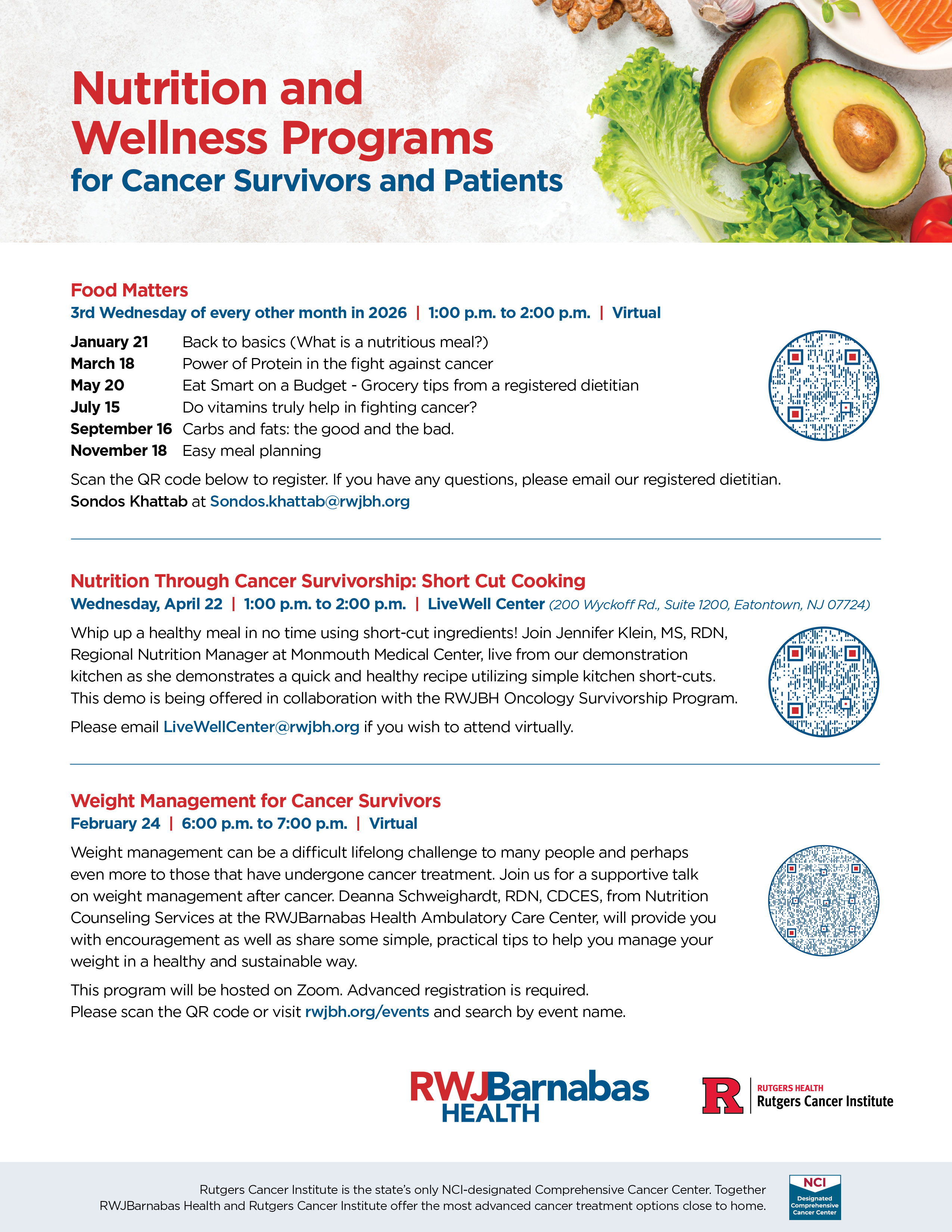
During cancer treatment, proper nutrition enhances the body's ability to fight the disease and improves treatment outcomes. For survivors, maintaining a balanced diet helps manage long-term side effects and improves quality of life.
Explore the Integrative Oncology Program →
Integrative Oncology Diet & Nutrition Resources

Demonstration Kitchen at the Jack & Sheryl Morris Cancer Center
At the Morris Cancer Center we are proud to offer nutritional education in our dedicated oncology kitchen located on the lower level. Classes will focus on cancer prevention, the treatment journey, and eating well to improve survivorship.
Recommended Websites for Patients Seeking Information on Dietary Supplements & Herbs
Our focus is to identify evidence-based resources and education materials to provide safe guidance on the utilization of dietary herbs, supplements, and probiotics for patients during the cancer journey.
-
American Cancer Society: Complementary and Integrative Medicine – Provides general information on complementary and integrative methods as well as dietary supplements.
-
MedlinePlus: Herbs and Supplements – Information on the effectiveness, dosage and drug interactions on herbal and dietary supplements. Developed by The National Library of Medicine.
-
National Cancer Institute, Office of Cancer Complementary and Alternative Medicine: Complementary and Alternative Medicine (CAM) A to Z - NCI: The Office of Cancer Complementary and Alternative Medicine (OCCAM) curated this list of evidence-based information on complementary and alternative medicine modalities used for the treatment of cancer or cancer-related side effects.
-
National Institutes of Health, Office of Dietary Supplements: Evidence-based information on dietary supplements
-
CancerChoices: Supplement and Therapies Database – Find how each supplement or therapy is rated based on medical benefit, improving treatment outcomes and managing side effects.
-
National Center for Complementary and Integrative Health: Information from the Federal Government’s lead agency for scientific research on complementary and integrative health.
-
HerbList App – From the National Center for Complementary and Integrative Health, this app is free and provides access to summaries on over 50 popular herbs. Download from the App Store or Google Play.
Please note that the Jack & Sheryl Morris Cancer Center's Resource and Learning Center does not guarantee the accuracy of or endorse the information available at websites from external links. Address all medical concerns to your healthcare professional.
Please note - many herbs, supplements and probiotics might have beneficial or adverse interactions with your specific oncology treatment. It is important you speak with your medical team (doctors, dietitians, pharmacists, etc.) regarding all supplements (vitamins, minerals, probiotics, digestive enzymes, etc.) and herbal items (teas, supplements) that you use.
Additional Resources
Looking for something else?
For more information, contact IntegrativeOncology@rwjbh.org.


